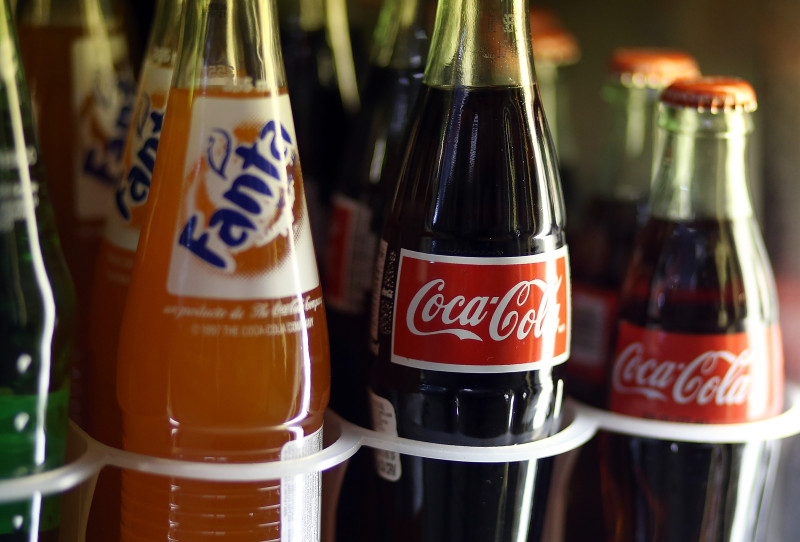That didn’t go over so well with some students, who circulated a petition and protested at an on-campus presentation by Coca-Cola.
“Pouring rights are a privatization of our public education system,” said the petition, which is posted on the site of Real Food Challenge, a group active in the protest. “Accepting money from private corporations in exchange for their mandatory presence on campus relinquishes student control over the campus environment, further exposes students to unhealthy soft drinks and corporate advertising, and undermines the integrity of public education by using compulsory policies to promote businesses that may not pursue our best interests or represent our values, such as increasing the availability of sustainable food choices on campus.”
The Golden Gate Xpress, the school newspaper, reported this about the Oct. 14 demonstration:
Mary Beth Carpenter, region asset manager at Coca-Cola Co., said she was shocked by the student involvement at the meeting.
“I must say, this is a first for me, so if I’m a little nervous it’s just because it’s a first,” Carpenter said. “We value the right to free speech, so right on San Francisco for sharing your views.”
After reading a list of demands, the protesters marched out of the room and said they were not interested in hearing the beverage company’s presentation. The protesters demanded that the university run all major decisions that effect students through the Associated Students, Inc. on campus and asked to be invited to an open town hall meeting with Wong, to further discuss the pouring rights agreement.
Seeking $2 Million Minimum
The university wrote in its proposal that it anticipated a payment of $2 million, minimum, for the contract, plus at least $125,000 annually.
What was the school offering in return? The San Francisco Chronicle’s Heather Knight did a pretty funny write-up of the promotional goodies the school was dangling:
Not only would the winning soda company get to sell loads of their drinks on campus, the contract could also include display space for ads in all of the university’s athletic venues, the right to name the university’s athletic complex for 10 years (Coke Stadium anyone?), permanent signage on all scoreboards, product sampling events and giveaways, in-game announcements and its logo on posters, programs and season-ticket brochures.
But wait, there’s more! The company might also get to sell its own branded coolers, towels, bottles and other gear at athletic events and would get loads of free tickets to men’s and women’s basketball games.
Still more! The company could negotiate for a student internship program created for it, its own career and recruitment day on campus, the right to “establish a corporate named endowed chair in the college of its choice” and the right to serve as the main sponsor for a variety of events, including the annual President’s Dinner and Alumni Hall of Fame Celebration, which was held earlier this month at the Ritz-Carlton.
Well, that’s not going to happen. But school president Wong issued a challenge to students concerning the lost revenue.
“This decision will mean the loss of potential funding for student programs, scholarships and athletics. I remain committed to finding ways to generate additional financial support for our students and programs, and I hope that students will join me in this effort.”
Big Soda, as companies like Coke and Pepsi are derogatorily called, is on a Bay Area losing streak. Berkeley passed the nation’s first soda tax last November. A similar measure failed in San Francisco, but only because it needed a two-thirds majority to pass. Fifty-six percent of voters were in favor of the proposal, to just 44 percent opposed.

